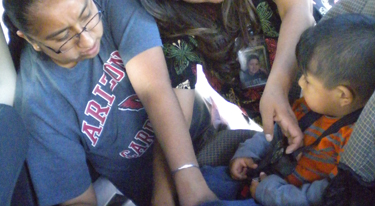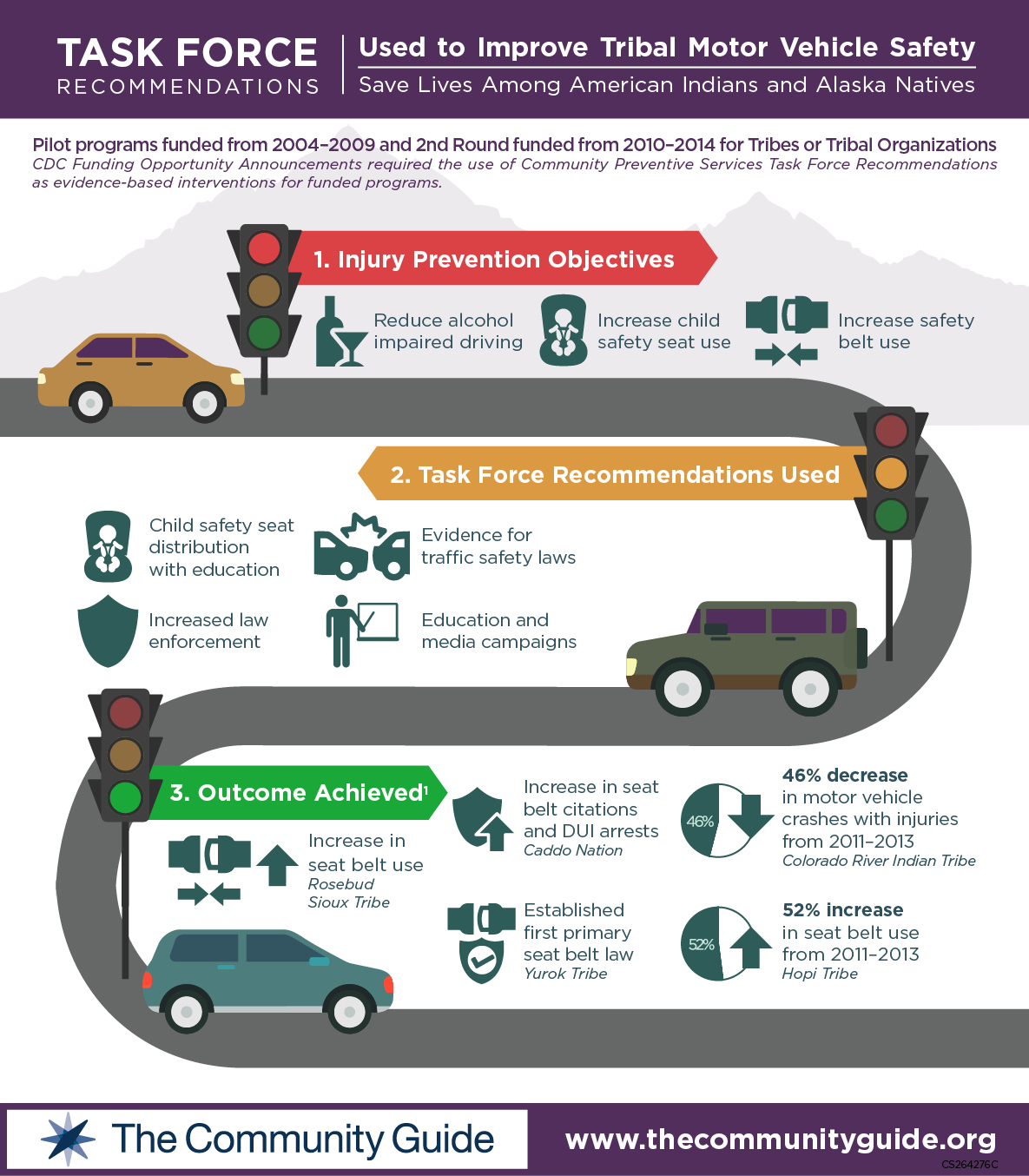American Indians and Alaska Natives

American Indian/Alaska Native communities can use Community Preventive Services Task Force (CPSTF) findings to develop interventions aimed at improving the health and safety of their unique, individual communities. The CPSTF has issued findings on a wide range of health and safety topics that disproportionately affect AI/AN populations, including heart disease, cancer, diabetes, obesity, teenage pregnancy, motor vehicle injuries, smoking, drug and alcohol use, and HIV/AIDS. Learn more at Indian Health Service, Disparities fact sheet.
Cancer
Implementation Resources
Health Systems Improvement Toolkit: A Guide to Cancer Screening in Indian Country
Developed in collaboration between CDC’s Division of Cancer Prevention and Control and the National Indian Heath Board
This toolkit was developed to share best practices from American Indian and Alaska Native funded programs implementing CPSTF-recommended interventions specifically in Tribal health systems working to increase high-quality, population-based breast, cervical, and colorectal cancer screenings.
Motor Vehicle Injuries
From 2004-2009 and 2010-2014, CDC’s Injury Center funded tribal organizations to implement evidence-based strategies from The Community Guide to reduce motor vehicle deaths and injuries.
Community Guide in Action Stories
 Buckle Up Yurok
Buckle Up Yurok
The California Rural Indian Health Board received a grant from CDC to develop a motor vehicle injury prevention program for the Yurok Tribe in California. The reservation saw increased child safety seat use each year after the program began. (Released 2015)
 Tightening the Belt: Increasing Occupant Restraint Use on the Hopi Reservation
Tightening the Belt: Increasing Occupant Restraint Use on the Hopi Reservation
The Hopi Tribe in Arizona received a grant from CDC to develop a motor vehicle injury prevention program. Over the four years of the program, both safety belt and child safety seat use increased. (Released 2015)
Additional Resources
Physical Activity
In addition to eating a healthy diet, exercising regularly can help people prevent and manage chronic conditions such as diabetes, cardiovascular disease, and some cancers.
Community Guide in Action Stories
 Rural Community Works Together to Stay “Fun and Fit”
Rural Community Works Together to Stay “Fun and Fit”
The tribal communities in rural Hoonah, Alaska used The Community Guide as a resource to help counter the increasing rates of obesity. They partnered with the Alaska Department of Health and Social Services to expand access to places for physical activity and get the community moving. (Released 2012)
